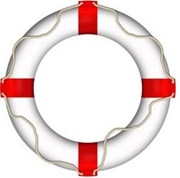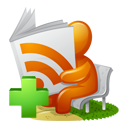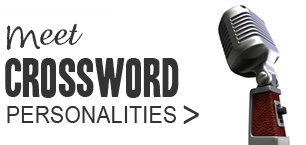
A few days ago, maddy wrote a comment with pertinent questions about the use of connectors in cryptic clues: "…how much is too much?? What is acceptable and what is not??"
As I see it, there is no single correct answer. There's a lot of ground that fair setters will agree on but sometimes it's a matter of taste than rules for right-wrong. Here are some of my thoughts on this. But first things first.
What are connectors?
For those new to cryptic crosswords, connectors are those words in a clue that give meaning to its surface but are superfluous to its cryptic meaning.
For example:
THC 9583 (Sankalak): Dress that, with time, becomes rubbish (7) GARB AGE
The above is a charade in which only the elements "Dress time rubbish" play an active role in the wordplay, the rest is padding. The clue needs the remaining words for its facade or surface, but the wordplay can easily do without them.
In contrast, here's another clue from Sankalak that has no connectors:
THC 9584 (Sankalak): Sad, yet somehow unwavering (6) STEADY*
"Sad yet" is the anagram fodder, "somehow" the anagrind and "unwavering" the definition. No padding.
Fair Connectors
Words that link the wordplay and solution in the following forms are considered valid quite universally:
| [wordplay] | is
for
giving
leading to
offering
to get | [solution] |
| | | |
| [solution] | is
from
given by
derived from | [wordplay] |
Things begin to get fuzzy when link words creep inside the wordplay. The most acceptable kinds are words like 'and' between charade components, or articles before common nouns.
Some examples of connectors inside the wordplay, which I think are all right:
Sunday Times 4295: [Animation with cello playing] is [soothing stuff] (8,6) CALAMINE LOTION*
THC 9506 (Gridman): [Bill has a levy] for [admission] (6) AC CESS
How much is too much?
The answer lies not in the count but in the role played by the connectors. A connector must connect – i.e. link together the wordplay in the direction of the solution, not detract from the solution.
Ask: Does the connector change the real meaning of the clue, giving no logical path to the answer? Is the only way to solve the clue by ignoring the connector?
If the answer is "yes", then even one connector is too much.
Let's revisit Sankalak's first clue again.
Dress that, with time, becomes rubbish (7)
Parsing it gives this format:
[charade component 1] that with [charade component 2] becomes [solution]
Three connectors, but all coherently come together leading to the answer. The clue says what it means, however deviously it may say it. That's a core requirement for fair clueing, and this clue passes gracefully in spite of being 50%-full of connectors.
Take this clue now:
THC 9577 (Neyartha): Cook pate stew too with edible root (5,6) SWEET POTATO*
Simple enough anagram, with one connector only. But is it an acceptable connector?
Parsing it gives this format:
[anagrind] [anagram fodder] with [solution]
This does not provide a logical path to the answer, the only way to make sense of the clue is by dropping the connector. That's a flaw that fair setters would try to avoid.
In Closing…
I'll hasten to add an analogy from the book Outliers by Malcolm Gladwell, which I'm reading currently with great interest.
Talking about plane crashes, Gladwell illustrates that crashes rarely happen because of huge catastrophic failures – engine parts do not explode in a fiery bang, the rudder doesn't suddenly snap. Crashes are more likely to be the result of trivial malfunctions/errors that on their own would not cause accidents, calamity strikes when a bunch of such errors occur all at once.
The same holds true for cryptic clues. Superfluous connectors by themselves do not spoil the clue totally – at least for me. If the rest is fine, I will not even notice while solving. But when combined with complicated wordplay, poorly checked grid or a vague definition for a hard word – that spells c-r-a-s-h.
Coming Up
I was writing more about the same connector being unequal in different clues, but that's making this article too long. So will follow up soon with a separate post. Hang on!
Update: Here's the follow-up post: Same Connector, Unequal Impact.
Meanwhile, give some thought to the connectors in these clues. What do you say? Completely fair, just pass muster or unfair?
THC 9564 (Gridman): Emotion attains a different range (5)
THC 9536 (Gridman): New slates smashed? But that’s known to me already! (5,4)
THC 9547 (Neyartha): Tractor operator does firmware development out of Wisconsin (6)
Related Posts:
If you wish to keep track of further articles on Crossword Unclued, you can subscribe to it in a reader via RSS Feed. You can also subscribe by email and have articles delivered to your inbox, or follow me on twitter to get notified of new links.

 A schoolmate Nitin would introduce himself with the line: "I'm Nitin, the same backwards and forwards". However cheesy that may be, at least it gave a mnemonic - people didn't forget his palindromic name in a hurry.
A schoolmate Nitin would introduce himself with the line: "I'm Nitin, the same backwards and forwards". However cheesy that may be, at least it gave a mnemonic - people didn't forget his palindromic name in a hurry. With all this talk about connectors, let's not forget the reverse – words that we assume are connectors, and it turns out they are part of the wordplay.
With all this talk about connectors, let's not forget the reverse – words that we assume are connectors, and it turns out they are part of the wordplay. In my last post about
In my last post about 
 Sometimes, we take up the grid and pen, start solving and fill in the whole puzzle.
Sometimes, we take up the grid and pen, start solving and fill in the whole puzzle. 





